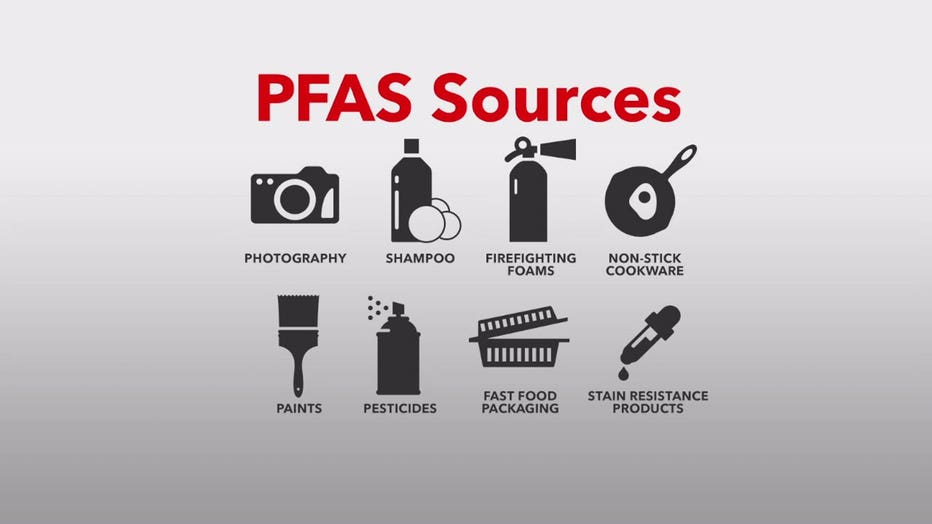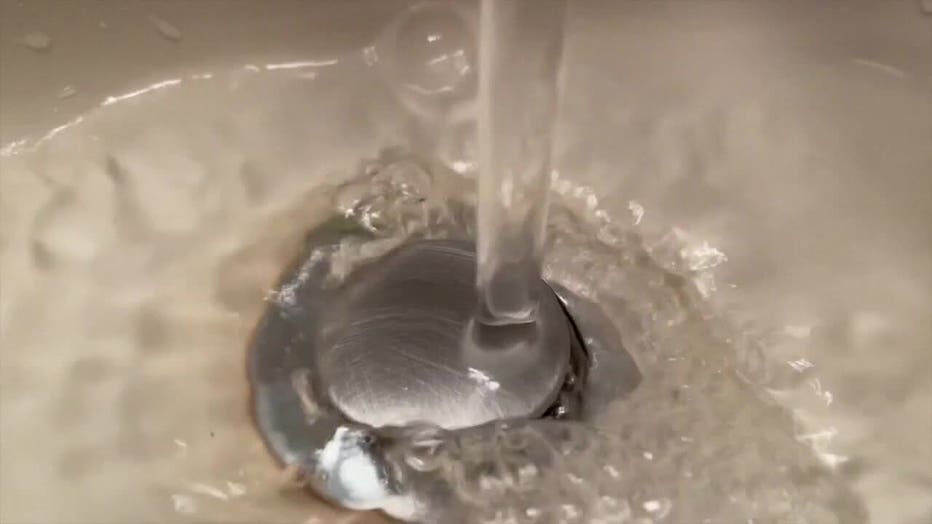Wisconsin PFAS contamination, health risks; new EPA regulations

Wisconsin PFAS contamination, health risks
"Forever chemicals" might be in your water. In Wisconsin, PFAS have been detected in areas across the state such as Oconomowoc and Milwaukee.
MILWAUKEE - "Forever chemicals" might be in your water.
Low levels of PFAS, or perfluoroalkyl and polyfluoroalkyl substances, are showing up in water supplies across the region. The federal government on Wednesday finalized new requirements for the chemicals in drinking water.
"At this point, you can’t avoid these chemicals. They're in a lot of things," said Rebecca Klaper, dean of the University of Wisconsin-Milwaukee's School of Freshwater Sciences.
SIGN UP TODAY: Get daily headlines, breaking news emails from FOX6 News
Since the 1940s, they've been found in things like nonstick frying pans, food packaging, waterproof clothing, cosmetics and firefighting foam. The U.S. Environmental Protection Agency said the chemicals may lead to decreased fertility, increased risk of some cancers and more.
"About five years ago, there was a study done that showed it had developmental impacts at way lower concentrations than what we had previously thought," Klaper said. "That’s where you saw this blow up of concern about these compounds."

PFAS have been detected in water utilities across the region. A Wisconsin Department of Natural Resources map shows where it's been detected including in Oconomowoc, Pewaukee, Brown Deer, Mukwonago and Milwaukee.
"The detection technologies started getting better, and we realized they were pretty widespread across the United States," said Klaper.
FREE DOWNLOAD: Get breaking news alerts in the FOX6 News app for iOS or Android.
Milwaukee Water Works has been testing for PFAS since 2008.
"The technology has advanced and allowed us to find lower and lower concentrations, and since we’ve been able to see our current concentrations, they’ve pretty much held steady," said Michelle Natarajan, Milwaukee Water Works' water quality manager. "Currently, all of the levels we’ve been testing have been below the new limits."

For two common PFAS compounds, Milwaukee Water Works said drinking water samples in 2023 were between 2 and 3.1 parts per trillion. The EPA's now-finalized rules require water utilities to test their water, share those results and have levels below 4 parts per trillion for those two common compounds. If they go over, they'll have to treat the water to get it below that threshold.
Utilities warn it will cost billions – with the extra costs passed along to consumers. The EPA said the new rules will save lives, setting a goal of zero: "This reflects the latest science showing that there is no level of exposure to these contaminants without risk of health impacts, including certain cancers."
Wisconsin has tested 1,856 water utilities since 2022, and the Wisconsin Department of Natural Resources told FOX6 News that roughly 89 of them have had samples that tested above the new federal requirements. However, the requirements give utilities three years to start testing under the federal program, and up to five years to fix any problems.
"Wisconsin’s systems have had a head start with sampling and knowing what is in their water, and those potentially impacted have a head start to work to reduce levels," a DNR spokesperson said.
As far as what you can do at your home, standard filters are an option.
"If you have concerns about those levels, I definitely encourage you to filter your water, but I drink the water unfiltered every day," Natarajan said.
As for your home, Klaper said you could rely on a carbon filter water pitcher or use an undersink carbon or anionic resin filter.
"I drink Lake Michigan water. I don’t have a filter on my tap at the moment. I know that the lead pipes have been removed out in my neighborhood. We have a great drinking water source," she said. "The key is to change your filter when they say for it to be changed, because the little pores on the filters clog up at some point, and then they’re not useful anymore for filtering any contaminants."
As the nation now changes its requirements, at the state level, Wisconsin's Democratic governor and Republican-controlled Legislature agree PFAS are a problem. However, they have not been able to agree on a plan for dealing with it. Gov. Tony Evers vetoed a Republican bill this week and called for the Legislature's Joint Finance Committee to meet next week.


